Signs of Stupidity comes in myriad troublesome forms across humanity. While signs of stupidity eludes straightforward definition, certain patterns in thinking and behavior correlate strongly with a lack of wisdom. The oblivious nature of stupid people obscures their own mental shortfalls from themselves, compounding their foolishness. Without curiosity for new ideas, capacity for logical reasoning, metacognition of one’s thought processes, prudent risk analysis, clear communication, or ownership of consequences, people repeatedly sabotage their own progress through life’s obstacles. Though no one embodies pure stupidity or flawless wisdom, the markedly stupid lack fundamental thinking skills critical for navigating life successfully and progressing toward enlightenment. Identifying bona fide hallmarks signs of stupidity can illuminate areas ripe for our own cognitive growth.
1. They Lack Curiosity

A curious mind is a prerequisite for wisdom. Those who are incurious rarely question assumptions, challenge ideas, or seek new perspectives. As a result, the stupid tend to harbor narrow, rigid viewpoints. They see no reason to expand their knowledge or consider alternative ideas. This closed-mindedness only promotes further stupidity.
Curiosity requires humility – a recognition of one’s intellectual limits. The stupid, however, lack awareness of their mental shortcomings. They assume they know all they need to know, despite glaring gaps and inaccuracies in their understanding. This arrogant obliviousness to their ignorance sustains their simple-mindedness.
2. They Struggle with Logical Reasoning
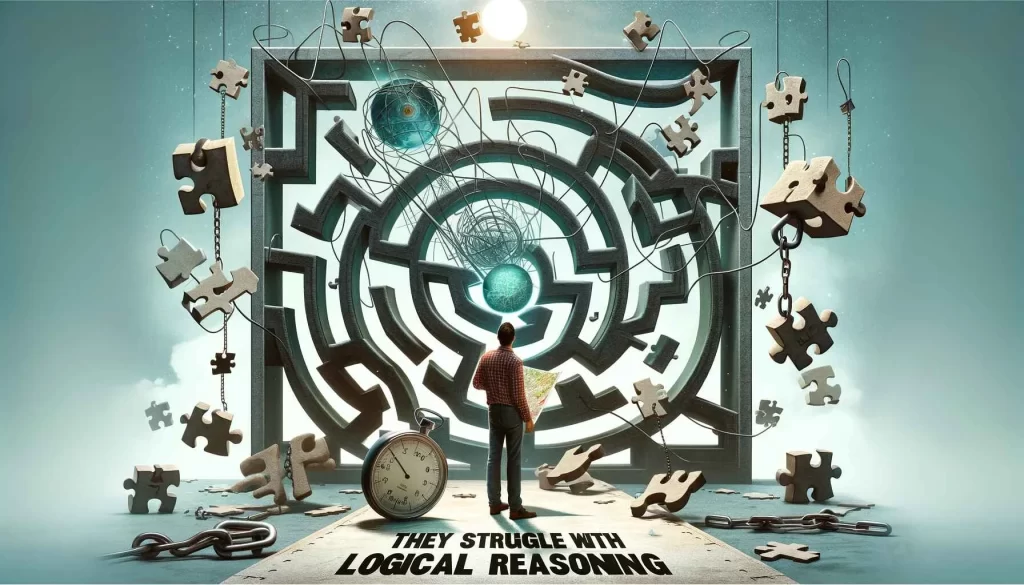
Another hallmark of stupidity is the inability to think logically. Stupid people often fall for fallacies, select arguments that support their bias, and draw questionable conclusions from limited information. Without solid logic skills, the stupid are prone to misconceive reality and make foolhardy decisions.
For example, they may make hasty generalizations from isolated incidents, confuse correlation with causation, or rely on emotional appeals rather than facts. When pressed to explain their reasoning, the stupid tend to respond with logical fallacies or incoherent explanations that reveal their muddled thinking. They lack the sound judgment that comes from rational analysis.
2.1 They Have Difficulty Anticipating Consequences
The stupid also tend to struggle with anticipating consequences – a key component of logical reasoning. Their thinking favors immediate gratification rather than long-term prudence. Without the mental aptitude to foresee outcomes and weigh tradeoffs, they blunder through choices that often yield disastrous results.
This constricted time horizon gets the stupid into unnecessary trouble. Had they exercised better judgment, they may have avoided their regrettable fate. Alas, stupidity impairs one’s ability to make sensible decisions.
3. They Lack Metacognition
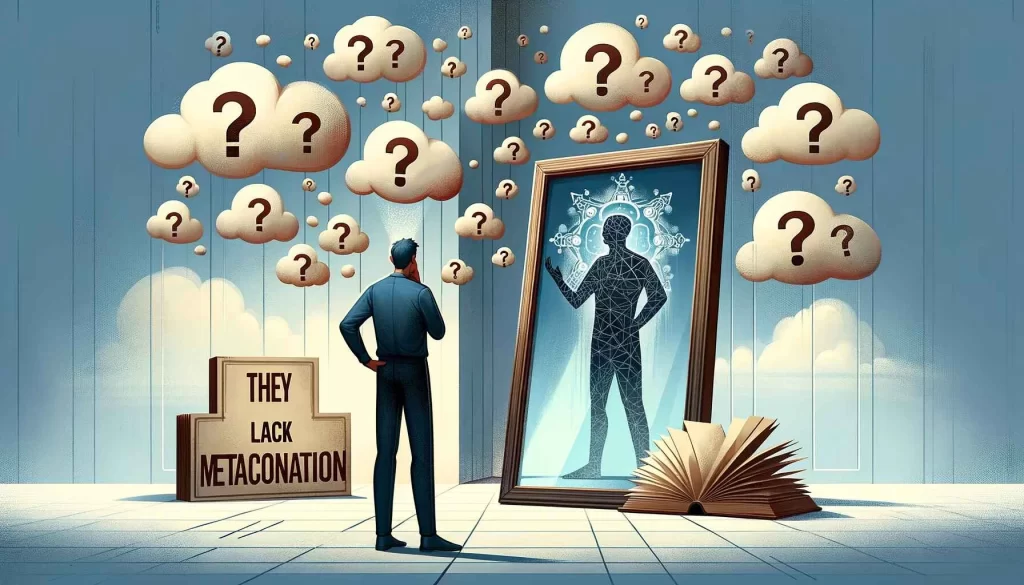
Metacognition refers to the ability to evaluate one’s own thought processes. Those lacking in metacognition fail to question the quality of their mental approach. They plow recklessly ahead without pausing to check their logic, assumptions, or methods.
The stupid tend to have little “mental peripheral vision” – an awareness of their knowledge gaps and thinking mistakes while making them. They forge ahead in blissful oblivion to their blunders until the aftermath catches up with them. Had they exercised some metacognition, they may have corrected their errors sooner.
3.1 They Don’t Learn Well from Experience
Wisdom develops in part from learning lessons through personal experience. The metacognitively-challenged stupid have difficulty deriving such insights. As they bumble through repeated mistakes, others often remark, “Well, they’ll learn their lesson eventually.” However, their thinking too feeble to achieve this mental growth.
Each new experience does not build their knowledge, but instead reinforces their established stupidity patterns. Without the capacity for honest self-appraisal, the stupid fail to revise their outlook to align with reality. They insist past lessons don’t apply to them without justifying why. This stubborn resistance to change keeps them mired in foolish ways.
4. They Take Stupid Risks

People exhibiting higher intelligence tend to make prudent decisions. Wisdom involves carefully weighing risks against potential benefits to maximize desirable outcomes. Stupidity, in contrast, entails rushing headlong into dangerous choices without heeding warning signs.
The stupid may take unnecessary physical risks, make foolish financial decisions, or blithely trust unreliable people. They disregard common precautions and plunge ahead recklessly. When their risky behaviors yield predictable disasters, the stupid act surprised as if they couldn’t imagine this outcome. They failed to accurately calculate risks mainly by ignoring those risks altogether until it was too late. Their foolish confidence overrides any mental alarms urging greater caution.
4.1 They Don’t Learn from Their Mistakes
A capacity for stupid risk-taking often coincides with an inability to learn from one’s mistakes. While most people eventually moderate reckless behaviors that yielded problems in the past, the stupid continue repeating the same avoidable errors.
They do not connect their risky behaviors with the consistent negative consequences. Each new disaster seems like an unpredictable fluke rather than an expected result. Without grasping these causal links, the stupid see no reason to change their conduct. They will continue falling into the same traps over and over through a stubborn refusal to acknowledge their mistakes and adapt accordingly.
5. They Lack Imagination
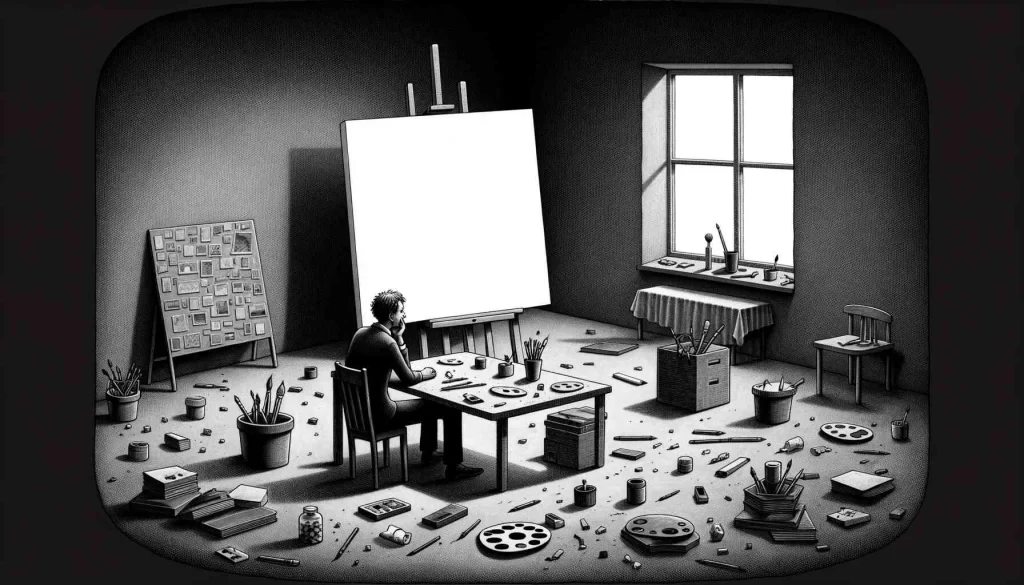
While imagination enhances intelligence, a lack thereof promotes stupidity. Unimaginative people interpret everything through their narrow life experience. They cannot mentally transcend their limited perspective to consider other vantage points or possibilities.
This mindset fosters prejudice toward those unlike themselves and resistance to creativity and change. Without imagination, the stupid cling to tradition and exclude different ideas rather than envision better alternatives. They reactively attack what they fail to understand rather than proactively seek to expand their awareness.
Such mental inflexibility keeps the stupid trapped in established notions. They double down defensively on their one “right” way rather than opening their minds to new potential. Ironically, the stupid perceive imaginative, big-picture thinkers as stupid for daring to envision possibilities beyond conventional boundaries. They mock rather than try to comprehend novel concepts. This inability to think creatively reinforces stupidity.
6. They Have Poor Communication Skills
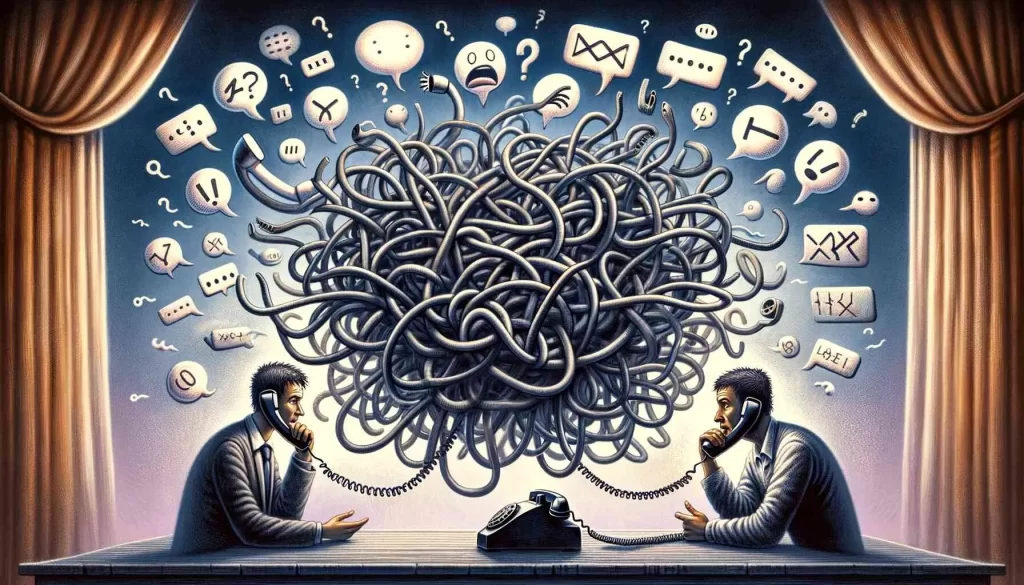
Clear communication requires organizing one’s thoughts coherently and conveying them effectively. Stupidity hampers both components of this process. Scattered thinking muddies attempts to articulate ideas logically, while intellectually lazy people avoid refining their communication skills.
The stupid are notorious for garbled misuse of vocabulary that leaves listeners bewildered. They use words improperly, switch between meanings unintentionally, completely fabricate terminology, or rely on gibberish or obscure phrases. Beyond literal language, stupid people often miss or mangle metaphorical references. These chaotic communication patterns signal mental disorganization.
6.1 They Are Impervious to Feedback
The capacity to learn from constructive criticism serves as an antidote to stupid behaviors. However, the advice of others tends to bounce right off stupid people rather than sinking in meaningfully. When confronted with their errors, they default to denial and excuses.
Rather than become receptive to feedback, the stupid argue against it. They feel offended by suggestions for improvement, taking them as personal attacks. Their fragile egos cannot handle being wrong, so they reject any critique of their blunders. Through emotional reasoning and stubborn pride, the stupid person resists growing wiser. They persist in their aimless stupidity via this inability to apply feedback.
7. They Blame External Forces For Their Problems
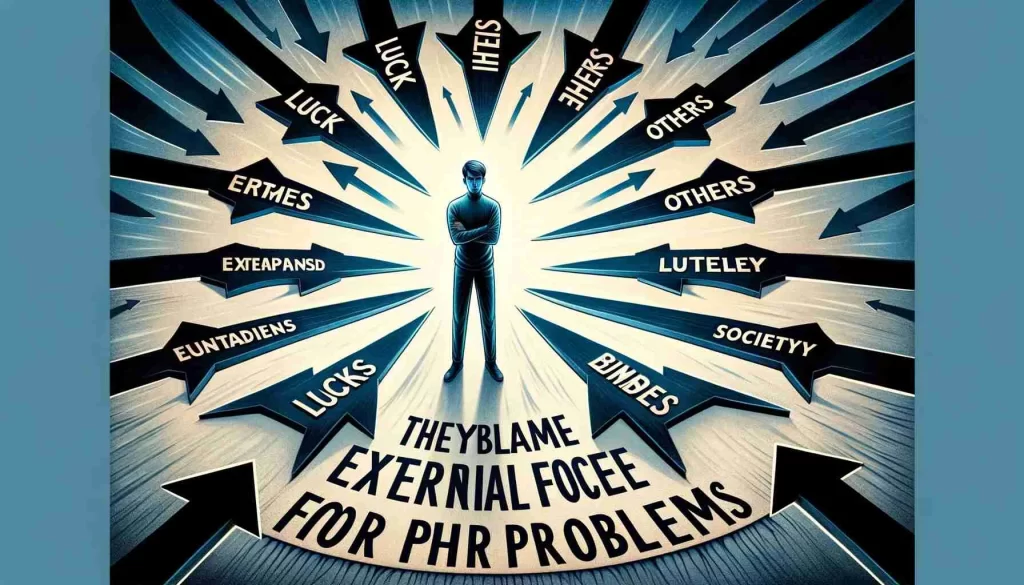
Rather than take responsibility for the consequences of their behaviors, stupid people fixate blame externally. Nothing is ever their fault in their eyes. They attribute their struggles to vague scapegoats such as “the system,” fate, luck, or other people.
This chronic victim mentality keeps the stupid from recognizing their personal power to drive outcomes through better decisions. By portraying themselves as helpless in the face of external forces, they evade seeking solutions to take control. Without acknowledging their agency, they render themselves powerless to correct course.
Through these mental gymnastics, the stupid manage to simultaneously create problems for themselves while denying their role. This abdication of responsibility solidifies powerlessness and stupidity. Until their avoidance tactics end, wisdom remains elusive.
Dealing With Stupid People in Everyday Situations
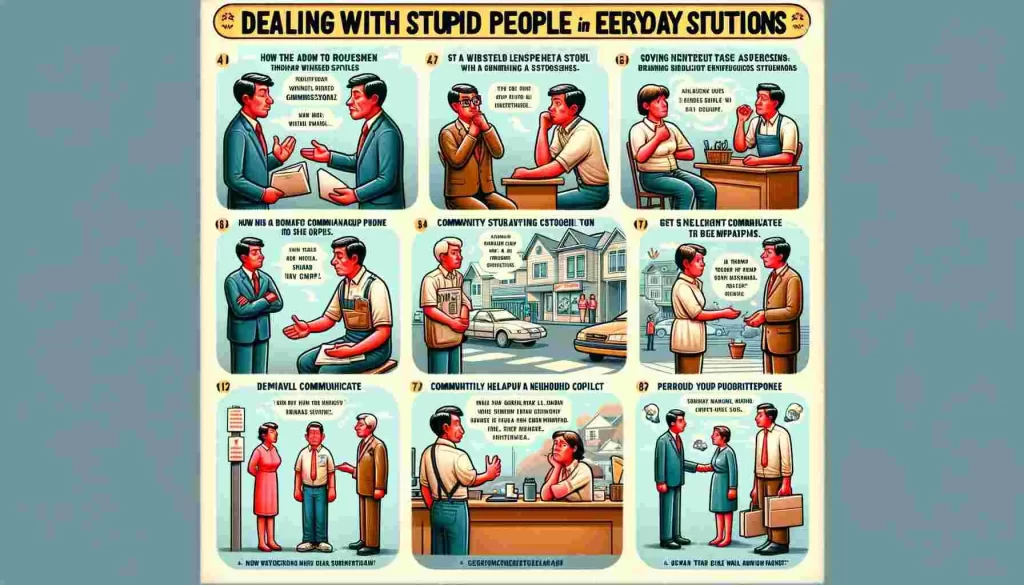
- Stay Calm: Getting frustrated or angry with a stupid person often does little good. That energy is better channeled into keeping your cool. Take a few deep breaths and tell yourself getting upset won’t make them less stupid. Channel your Zen inner peace.
- Adjust Your Expectations: Recognize you likely can’t carry on an intellectual debate or complex logistical planning with someone lacking thinking skills. Pare back the conversation to simpler terms focused on the task at hand without overestimating their mental capacity.
- Speak Slowly and Clearly: Lay out your words explicitly without relying on implications or subtlety. Over-explain any complex terms in plain language if necessary. Think step-by-step bullet points stated simply rather than paragraphs of elaboration.
- Repeat Yourself Patiently: When instructions or statements inevitably go misunderstood or ignored, gently reiterate yourself without snapping. Interrupt their off-track ramblings to redirect back to your original point. Hammer home key ideas through repetition.
- Ask Direct Questions: Keep queries clearly focused without complicated phrasing they may fumble interpreting correctly. Check for understanding by having them explain back to you. This helps ensure your messages avoid going in one ear and out the other.
- Give them Limited Autonomy: Where reasonable, allow stupid people freedom to make minor choices to retain a sense of control. Yet limit their authority in situations requiring thinking skills beyond their capacity. Oversee important processes without micromanaging peripheral details.
- Keep Your Expectations Low: Hoping for rational thought, complex planning, empathy, or leadership abilities from someone profoundly stupid will only lead to disappointment. Expect occasional foolish remarks and silly decisions devoid of foresight. Then when stupidity arises, at least you won’t be surprised. Just guide them gently toward better directions.
The burden is ultimately on us to modify our interactions to account for limited mental faculties. While their signs of stupidity remains largely impervious to external forces, we can make the best of coexisting with it. With enormous patience, simplified communication, close supervision of serious responsibilities, and accepting limitations, we can target harmony over trying vainly to transform the stupid into sages. This allows us to minimize headache-inducing frustration and preserve our own peace of mind.
Conclusion
While no single characteristic definitively indicates stupidity, patterns like closed-mindedness, blame shifting, terrible judgment, obliviousness, and defiance of logic signify someone is mentally subpar. None of us are perfectly wise beings, but the stupid lag considerably behind in their intellectual and emotional development. Until they take ownership of their minds, their lives will continue functioning poorly. Without that impetus to grow, they remain stalled in their senseless existence.
We all manifest degrees of stupidity at times. Growth entails noticing those instances within ourselves and working to right our wrong thinking. While we cannot force wisdom upon others, we can lead by example – challenging our misconceptions, daring to understand ideas unlike our own, taking responsibility for our behaviors, carefully calculating risks, anticipating consequences, and pursuing lifelong learning with an open, curious mind. This personal commitment can inspire positive change in the world by chipping away at stupidity from the inside out.
Frequently Asked Questions
It’s true that concepts like stupidity and intelligence are difficult to measure objectively. However, extensive research has identified correlations between behaviors like closed-mindedness, poor critical thinking skills, and obliviousness with lower cognitive abilities. While the signs discussed may manifest in varying degrees, clear patterns emerge among those considered less mentally adept.
Absolutely, no one is perfectly wise or rational 100% of the time. We all lapse into logical fallacies, ignore crucial information, and make foolish decisions on occasion. However, profoundly stupid people exhibit these problematic thought patterns consistently and pervasively without self-correction. Most of us course correct after periodic bouts of scattered thinking. Those more intellectually challenged display unwise thinking as their default.
Yes, problems like depression, anxiety, trauma, emotional dysregulation, and more can certainly contribute to suboptimal decision-making. And struggles like ADHD can make critical thinking difficult. So stupid behaviors don’t necessarily reflect low I.Q. exclusively. However, chronic unchecked stupidity patterns likely involve a complex interplay of both emotional and cognitive deficits.
Cultural norms and values absolutely influence what people consider intelligent or stupid behaviors. Not all cultures prize traits like logic, curiosity, imagination, and verbal communication typically associated with wisdom. Some societies prefer conformity and tradition over questioning norms or envisioning alternatives. Perceptions of stupidity hinge heavily on its cultural context.
Absolutely. Those with more wealth, status, education, and representation typically define terms like smart and stupid from a narrow, self-serving perspective. Structural disadvantages make it harder for marginalized groups to gain access to opportunities for developing their minds and displaying intellectual competence in mainstream terms. Yet a lack of conformity with dominant culture does not inherently reflect deficits in intelligence.
Read More
Heart Melting Letters to Husband Who Hurt You
Transform Gray Hair with the Best Silver Shampoos Today
Transform Your Workout with the JLL IC200 Pro Indoor Cycling Bike












Your latest blog post was truly inspiring and had some great insights. I can’t wait to see what else you have in store.
Wow Thanks for this article i find it hard to track down smart details out there when it comes to this topic thank for the guide website
Wow Thanks for this write-up i find it hard to uncover extremely good answers out there when it comes to this blog posts thank for the thread website
Wow Thanks for this site i find it hard to come up with good quality ideas out there when it comes to this subject material appreciate for the blog post site
Wow Thanks for this write-up i find it hard to identify very good information out there when it comes to this topic appreciate for the article website
Nice post. I learn something totally new and challenging on websites
Wow Thanks for this blog post i find it hard to come across decent ideas out there when it comes to this topic appreciate for the post site